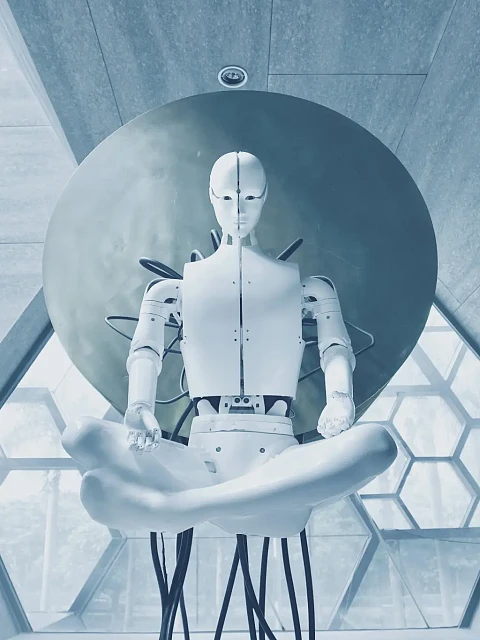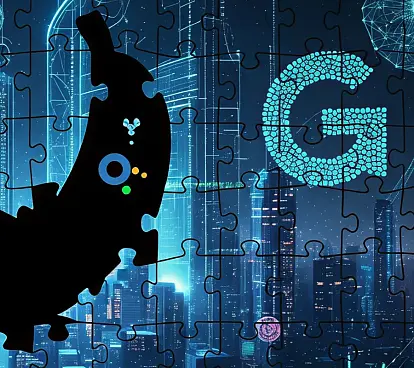
AI is Useful Everywhere
December 4, 2023
A couple of decades ago, when retail companies began to incorporate e-commerce channels, they started to adapt their systems with a very simplistic and short-term approach to react quickly. When they incorporated this new capability, they transitioned from having several physical stores to creating ERPs by implementing an N+1 store, also known as the "internet store." A specific stock of each product was reserved or blocked off for that virtual store. However, if there were no central warehouses, a system was added to indicate which physical store contained the stock while measuring the customer's distance from that store. These electronic systems also handled other functions such as logistics, customer service, and settlement of payments.
Now, all companies have incorporated the new e-commerce channel into the core of their business models with varying degrees of sophistication. Everyone thinks about omnichannel, where the physical store channel and the online channel collaborate and complement each other in all the formats (you start by inspiring in one place, you test in another, you buy in another, you receive in another, you return in another... with all the possible variants).
With the introduction of AI agents in companies, I think we are now in a similar situation to the beginning of e-commerce, where this new capacity has added an "artificial" aspect to the existing work model. We usually think of projects where, in the next room, a team of engineers, data scientists, and new specialists are dedicated to collecting data, training models, and producing classification, projections, or synthetic content. We expect them to return from a dark room with something ( dashboards, reports, or an Excel spreadsheet) that can be useful for the rest of the workers focused on their usual processes.
In this new era, whether it is openly discussed or not, each worker has obtained AI tools that can secretly enhance their typical work. This can result in someone selfishly guarding their new generative AI tool, making them appear more productive in front of others. Whether it is the ability to make more PPTs per minute, write longer emails in 5 languages, or clutter your colleagues' inboxes with gpt-ian verbiage about any topic of discussion in the work conversation threads, another colleague sitting next to them is also equipped with AI tools. On the other hand, they can also use AI tools to summarize long emails to get the highlights or extract four pieces of information they may need from the 20 pages of PPT that occupy the daily report, leaving us wondering how they find the time to send so many reports at all hours.
Are we all more productive? In individual terms, each person may be more productive. In business terms, we are probably marginally improving total productivity, or we may actually be making it worse with a productivity posture spread across all positions in the organization.
Where do I imagine we’ll be in 5 or 10 years? There will be no robots making reports for other robots to extract what is valuable from the reports. It will not be necessary to have thousands of graphs designed with care to draw the attention of the human eye when something strange happens to be able to understand the relevant magnitudes relatively and then to sophisticate the elaboration of the information to impress each other. Efficiency will not be as relevant because what is relevant will not be the ability to produce a result consistently with a faster or cheaper process. AI will allow us to produce different things. It will allow us to take advantage of the company's assets (its people, material assets, data, and those assigned to it by its clients). AI will help us rethink all our processes and be hidden in every part of the system.
We may continue using email as a common communication vessel between all people. Intelligent machines/agents will be embedded everywhere, doing tasks from listening to interactions to constantly monitoring the data in systems, sampling, and simulating. These intelligent machines will also be able to generate data or alerts, hypotheses or models, and develop possible strategies and suggestions based on relevant findings compatible with the rules and objectives. I hope that the company's hyper-specific and hyper-timely values influence how this technology is delivered to people or other intelligent agents who can review or take advantage of them anytime.
The first step to evolving human and artificial intelligence in a spread-out, collaborative, and aligned manner with certain common purposes is to stop thinking about doing the same thing faster and cheaper. It won't even be very practical to simplify what we already have because the machines themselves will suggest that to us. There is no need to maintain a system, refactor a software module, build a validation process for humans, or generate a report that already exists that no one reads. Technology will remove the need to include pedals, turn signals, or steering wheels in cars that will be able to maintain speed, turn, and warn each other when entering and leaving in a coordinated manner at a roundabout (this will have to be programmed by Spanish engineers because those from Tesla in the USA will not be capable).
Where we should put the energy is not in quality control, order, efficiency, or even simplification. Where we should focus if we want to have an advantage over others is on daring to define the problems that are worth solving. This can be accomplished by maybe revisiting problems that we did not know how to address years ago, whether it was because we did not know how to dissect them, where to get information from, how to program, or we did not know how to put everything together.
We are entering some exciting years where those of us who are lucky enough to touch technology a little more and a little earlier than others have the responsibility and the impressive opportunity to do worthwhile things.
Our latest news
Interested in learning more about how we are constantly adapting to the new digital frontier?

Tech Insight
September 29, 2025
Why Speak to LLMs in English? The Technical Reality Behind AI's Most Repeated Advice

Insight
September 11, 2025
Google now has the missing piece to lead the AI race

Tech Insight
July 1, 2025
The ultimate guide to applying AI with insight: from theory to real-world cases that transform your business

Tech Insight
May 28, 2025
LLMs, Vibe Coding, and software development
